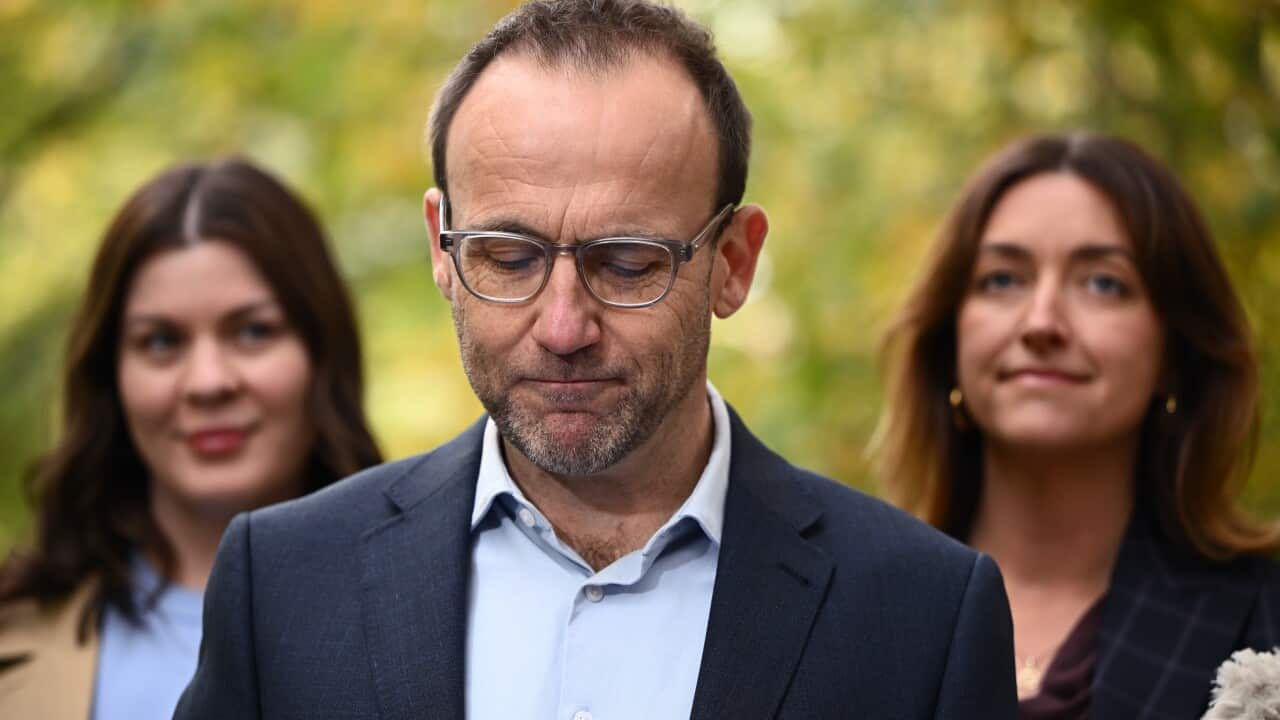"Yes, they also practice isolation. In fact, it is an inherent quality of these bees," says Dr RK Thakur, Joint Director at Dr YS Parmar University of Horticulture and Forestry in Himachal Pradesh, India.
The professor of apiculture collaborates with universities all over the world to study bees and their behaviour and recently teamed up with Western Sydney University in a study aiming at enhancing the productivity of crops in India as well as Australia. "Once the bees of a colony get to know that one of them is infected, they isolate the bee and they cut off its cell from the colony."
"Once the bees of a colony get to know that one of them is infected, they isolate the bee and they cut off its cell from the colony."

May 20 was officially named World Bee Day in 2018 by the United Nations in a bid to raise awareness for the role bees play in keeping the planet healthy. Source: AAP
While humans do not take such drastic measures, it's good to know that we have something in common with these buzzing creatures.
And that's not all. Dr Thakur has also conducted experiments which have shown that at times, bees of a colony perform a grooming dance to get rid of mites. "If an adult bee in the colony is infected by mites, the other bees gather around it and perform a grooming dance. This dance leads to the mite to detach from the bee and fall on the ground."
"If an adult bee in the colony is infected by mites, the other bees gather around it and perform a grooming dance. This dance leads to the mite to detach from the bee and fall on the ground."

Bees account for 80% of plant pollination by insects, which is vital to global food production. Source: AAP
"Save the Bees" on World Bee Day
This year's theme on World Bee Day, May 20th, is Save the Bees.
With pollution, use of pesticides in crops and climate change, the population of bees has been declining drastically.
"More than 70 per cent of crops worldwide depend on bees for pollination. With a decline in their population, it will be difficult to produce these crops and get food on the table for all of us.
"In Australia especially, the crops of almonds, apples, strawberries and blueberries rely heavily on pollination by bees for good and healthy produce. One in three mouthfuls of food in Australia benefits from honey bee pollination," says Dr Thakur.
Many farmers around the world practice monoculture growing just one crop on their land, which Dr Thakur says leads to damage to the soil of the land and also to bees.
"Polyculture, or growing multiple crops on the same land will improve the health of the soil and also help the bees. Having a diverse crop to pollinate will help the bees to become healthier and produce rich honey."
Australia and the Varroa Mite
A mite that has caused havoc for beekeepers and for bees around the world, the Varroa mite is a parasite that attaches to the body of a bee and destroys an entire honeycomb.
Beekeepers around the world are worried about the damage that these mite have been doing to bees and their colonies.
"This is another thing that is causing a decline in their population," Dr Thakur says. "However, Australia has been lucky in that aspect to date. Beekeepers in Victoria did encounter some of these mites during a shipment delivery a while ago. But they succeed in getting rid of the mites there and then."
"However, Australia has been lucky in that aspect to date. Beekeepers in Victoria did encounter some of these mites during a shipment delivery a while ago. But they succeed in getting rid of the mites there and then."

An undated supplied photo of a Varroa mite on a honeybee pupa. Source: AAP
Australia is said to be the last continent in the world that is free from Varroa mites.
"The rich flora present in the continent lead to the production of the most organic honey and is very beneficial for the health of the bees as well.
"With everything changing around us constantly, it's important to educate ourselves about bees," he says.
"The theme for this World Bee Day could not be more apt. We should all pledge to learn more about their importance in the food chain and how we can save them."











